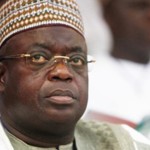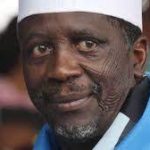OPINION: Improving the Integrity of African Elections
Articles/Opinion, Featured Contributors/Columnists, Latest Headlines, Politics Friday, September 1st, 2017
Photo caption: Kenya’s Opposition leaders, Raila Odinga
By Prof. R. A. Ipinyomi, University of Ilorin, Nigeria
(AFRICAN EXAMINER) – The integrity of general elections in Africa has become international concern because of its alleged unacceptable low integrity. For example a presidential general election was held in Kenya on 8 August 2017, where initially the incumbent, President Uhuru Kenyatta was returned to office with 54% of the vote. However his main opponent, Raila Odinga refused to accept and went to court. After Odinga contested the results in the Supreme Court, the results were annulled and a fresh election was ordered to be held within 60 days. The judgment represents a significant pronouncement by the judiciary and its independence from executive administration.
Most of the presidential elections in Nigeria had also always ended in court, from High Court, Appeal Court and to the Supreme Court. The decision by the Supreme Court in Kenya is a major surprise to many observers because the court agreed with opposition arguments that the electoral commission had committed irregularities that invalidated the poll. The fact that the opposition candidate Odinga and his supporters were jubilant as they welcomed what Odinga called a “precedent-setting ruling” by the court also give a signal that perhaps the system in Kenya is becoming of age. In the history of African democracy a ruling has been made by a court nullifying the election of an incumbent president for the first time. Many people in Kenya had been seen taking to the streets in jubilation and by extension the people of the continent of Africa. The implication of this judgment would become clearer in subsequent elections in different parts of Africa in years to come.
What went wrong in Kenya? First Kenyan’s Constitution requires there to be a general election on the second Tuesday in August in every fifth year. There have been public discussions to move the date from August to December and the opponents of the election date change had argued for protecting the constitutional provision and that any change would be mired by legal challenges and may drag on to the next elections and still require a referendum to decide, putting the country’s stability at risk. An external intervention came on 7 August 2017, one day before the election, from the former US President Barack Obama whose father was Kenyan. President Obama had called for calm and acceptance of the election results but his intervention was noted by the media as unprecedented. Secondly the President of Kenya can emerge by election using a recently modified version of a two-stage system. The candidate may win in the first round by receiving over 50% of the total vote and a spread of 25% of the vote in at least 24 counties out of the 47 counties, otherwise the process goes to the second stage.
Hence the elections were not annulled based on constitutional fouls, but that between the pooling booths and the counting centers frauds had been committed where over 5 million ballots were noticed with different faults and irregularities. How can we improve the integrity of our elections by removing interferences even from electoral officials and Election Commissioners? Remember that elections that are totally computerized could and had been hacked and falsified leading to every nation counting by hand, one by one. We all need to work together on how best to promote and protect the integrity of national elections. The Western World democracies we seem to copy, emulate and follow verbatim, that they seem not to bother about the integrity of their elections. They simply accept the election results with little complaints like asking for a recount. Their attitude has become a culture of simply accepting in order to be seen as putting the system above board, or as a good guy, being democrat.
Unfortunately, instead of working collectively together on improvement, the voters are often left to questioning the integrity of elections and their actions could mean many losses of life. The best and first approach however should have been that electoral officials put in charge are professional, competent, non-partisan, and politically independent. In most African countries electoral authorities are put together by incumbent governments. Hence they would be lacking in every area and totally becoming incumbent government agents that cannot be seen deepening democracy.
A Strategy for Improving the Integrity of Nigeria national elections must include finding the right individuals for the respective elective positions. The strategy must also have powers to control campaign finances and regulate campaign cash sourcing. The prevailing Nigerian policies still make voter registration and voting too tedious and very cumbersome. Voters are confronted with a two-stage huddle at pooling booths, first accreditation and to return later to cast the vote. The system is yearning for a professional, independent, non-partisan election management to be free and fair. We need the presence of security agents but not for the reasons they are presently rolled out. The August 2017 Kenya’s general election is a fair representation of most elections in African countries where elections suffer gross extraneous interferences and loss of integrity.
In the 2017 Egypt’s general election, where the incumbent president Abdel Fatah Al-Sisi was said to have won with 96% of the vote cast, the turn out was only about 47% of Egypt’s 53 million eligible voters. Egypt’s election represents what happens in a one-party State. The focus of incumbent governments in such a scenario is to inflate their
popularity by enforcing voter turnout through all means. Voters could be threatened with a large fine and other denials. In the case of al-Sisi many polling stations had appeared empty throughout the week’s poll, despite non-voters being threatened with any fine, or his introduction of a last-minute public holiday, and the extension of voting to a third day. This also is not the model we recommend for Africa but a free and fair election where voters are very proud to voluntarily troop out to vote and where every vote counts.
Therefore the entire world is looking up to Kenya electoral authorities to perform a magic no African country had been able to achieve so far. Ghana is probably the best model so far, for whatever reason. An inherent problem in Africa always induces African voters to vote by tribe, ethnicity and by religion rather than by party policies and candidate’s ability. Hence sixty-day-period is rather too short for any significant change to happen unless all the electoral officials are replaced by less emotional foreign ones. President Uhuru Kenyatta may actually have improved lead and then the possible public unrest. Meanwhile the United Nations must be willing and ready to support Kenyans at this time, especially to forestall any attempt that may cause large scale unrest.
Prof. R. A. Ipinyomi
Related Posts
Short URL: https://www.africanexaminer.com/?p=40629




















